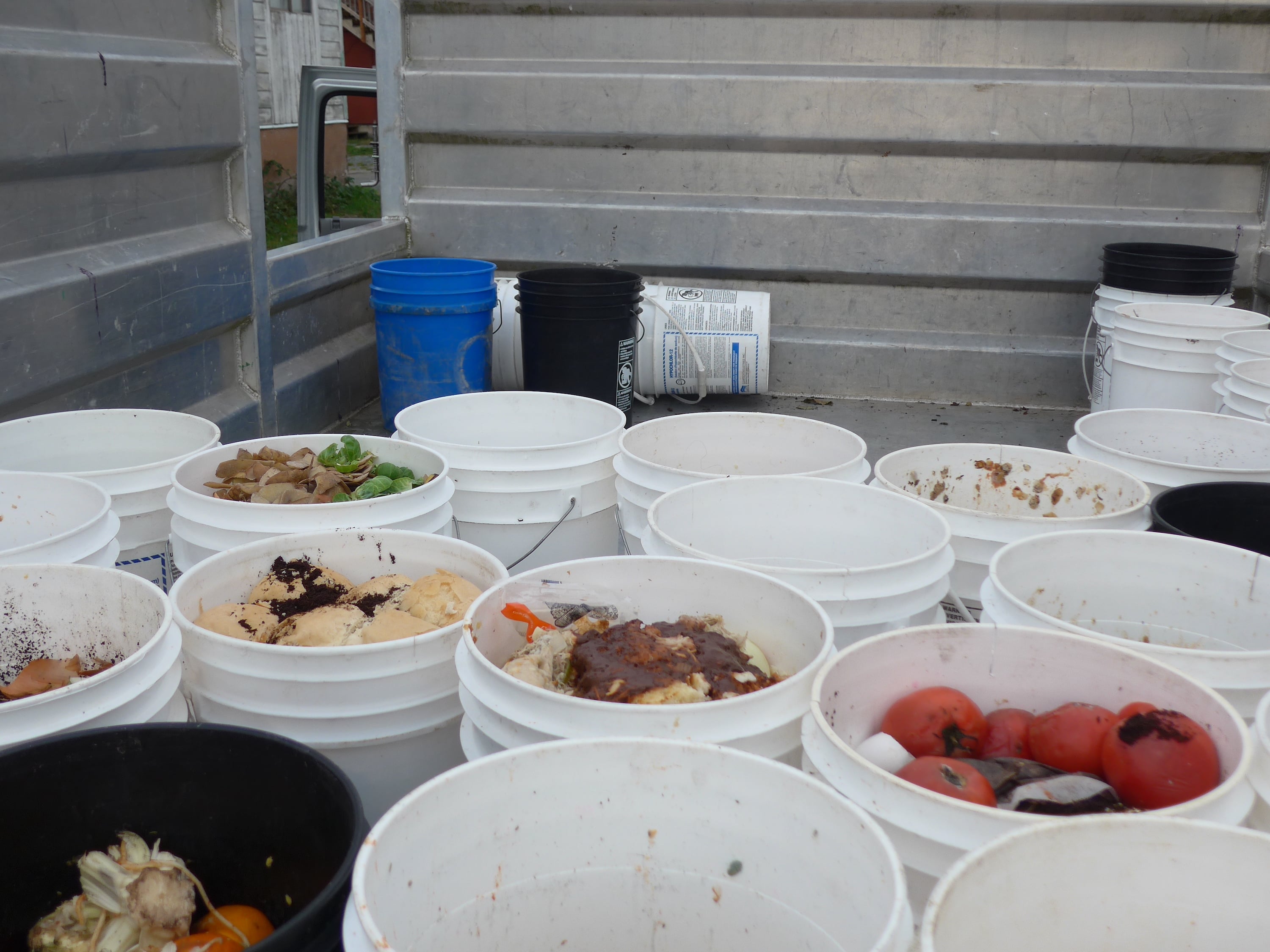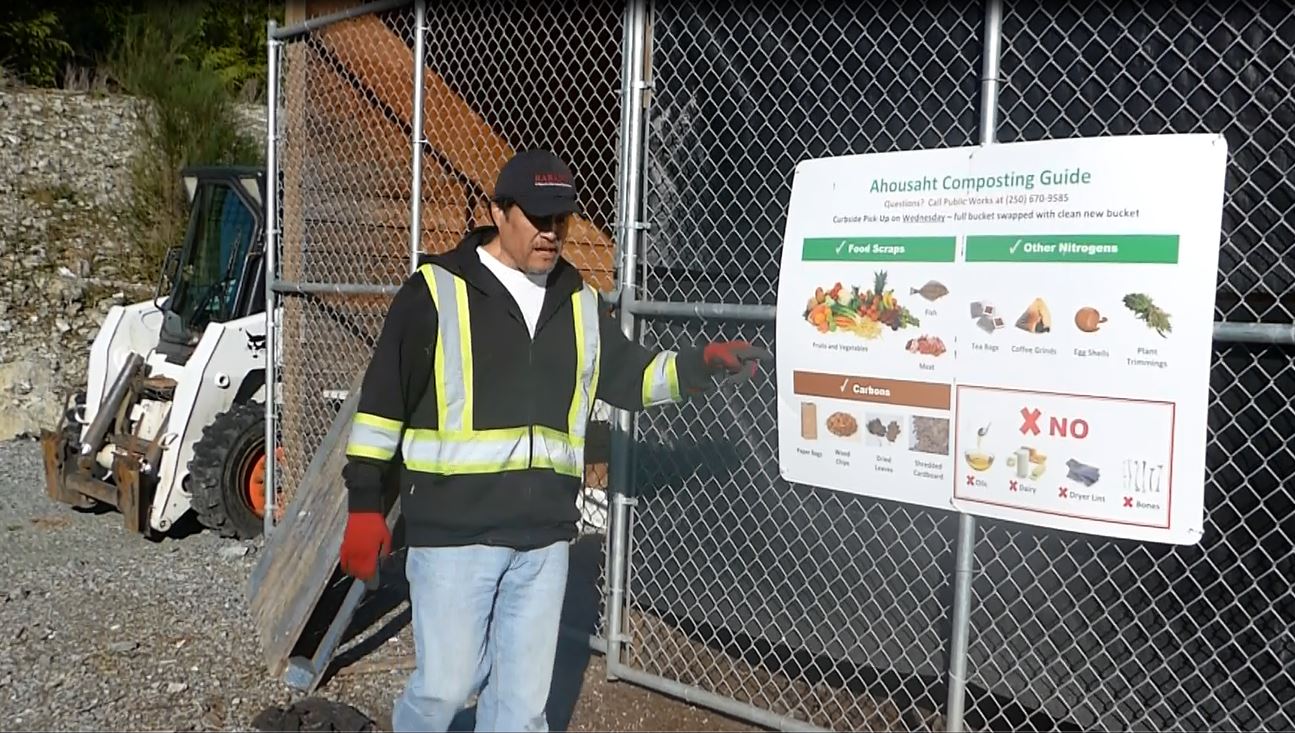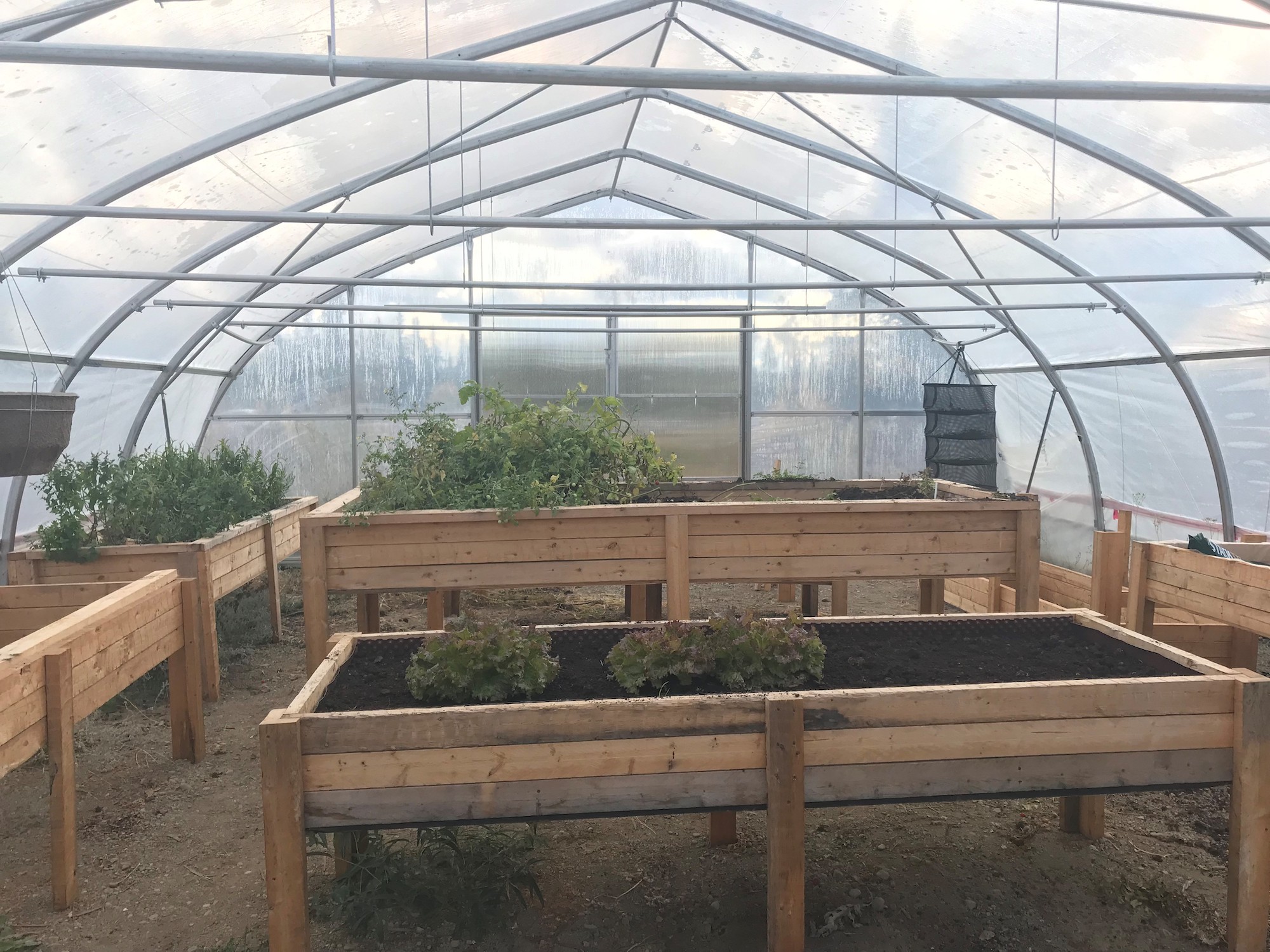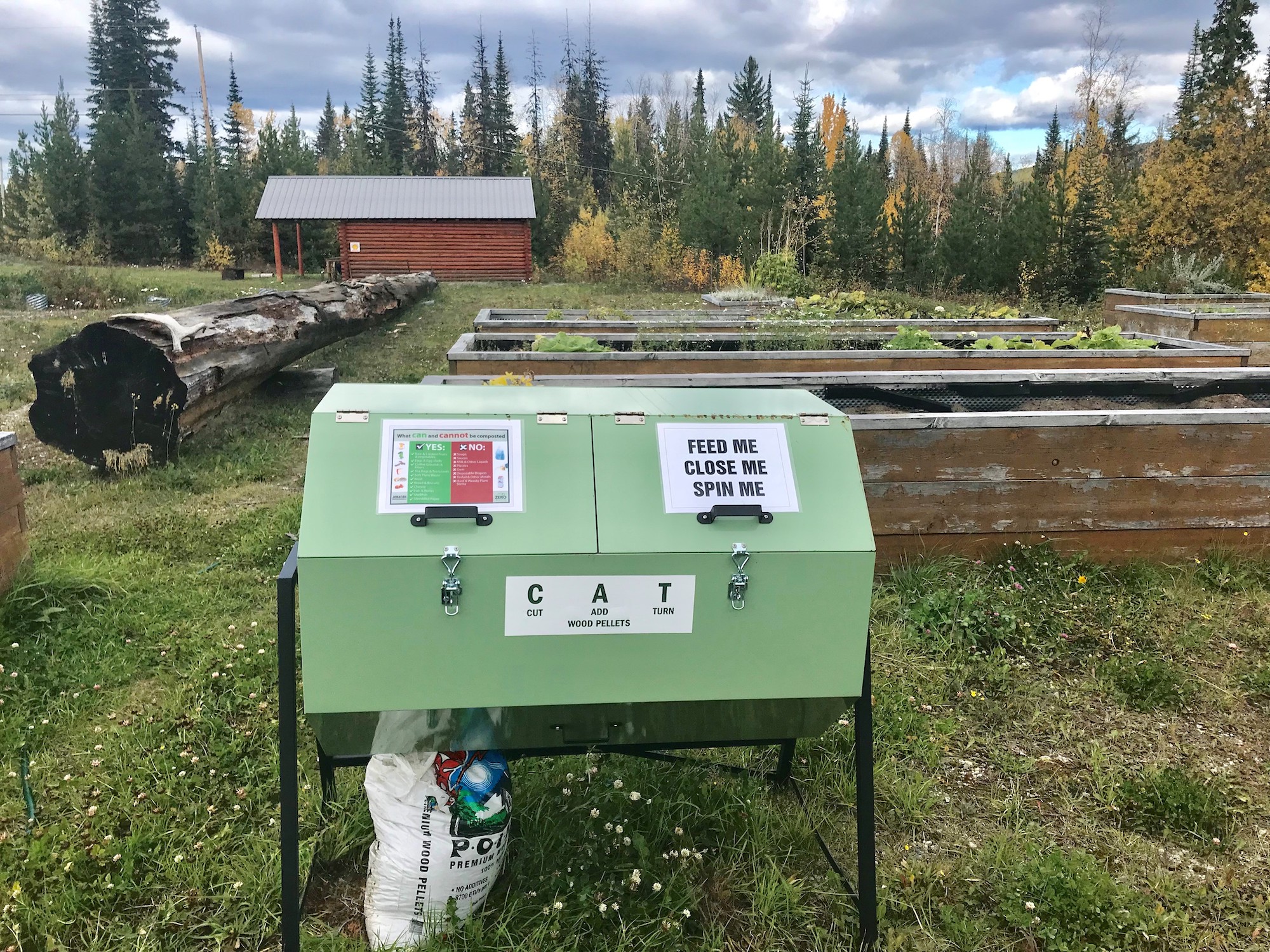
Recycling
Composting
What is Composting?
Composting is the breakdown of organic material by worms or bacteria into a nutrient-rich soil conditioner or compost. In B.C., 40% of material sent to our landfills is organic or compostable.
There are many composting methods, from household backyard composting to large factory-style composting in urban areas.

Environmental impact
Keeping organic matter out of landfills reduces the production of landfill gas from decomposition. Landfill gas is roughly 50% methane, which is 21% more powerful than carbon dioxide as a greenhouse gas.
Best Practice Examples
McLeod Lake Indian Band (MLIB), a community of 120 people, located 140 km north of Prince George, wants to be the first Zero Waste Community in the North. MLIB built a recycling station and a community greenhouse in 2018, and employs a community environmental champion. A Jora composter helps the community turn kitchen scraps into soil conditioner for use in the vegetable beds.
Bella Bella
From a pilot with 30 households (less than 100 people), Bella Bella’s community composting has grown to over 300 households (nearly 1,000 people). Keeping over 100 tonnes of organic natter out of landfill.

